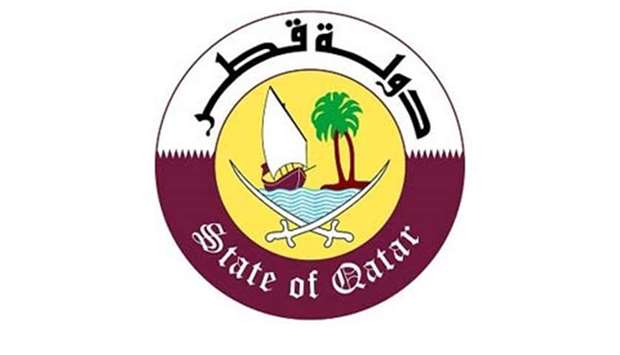The State of Qatar on Thursday reviewed the latest in its continuous efforts of developing the expatriate labour sector, including that of Africa.
This came during the Qatari delegation's participation in an international conference to promote intra-regional labour mobility within Africa and to protect the fundamental human, labour; and social rights of workers migrating within the continent and from Africa.
The Qatari delegation was led by the Director of International Cooperation Department at the Ministry of Foreign Affairs, Ambassador Tariq bin Ali al-Ansari, with representatives from Ministry of Administrative Development, Labour and Social Affairs.
During the presentation, the ambassador highlighted the indications, ratios and data related to the development of laws and national committees.
The national committees work on protecting rights, labour salaries, determining working hours, securing social security and basic services such as health, mobility and obtaining services to choose business sectors from accredited offices, all in compliance with global commitments and agreements signed with countries who provide expatriate labour, al-Ansari said.
Al-Ansari spoke about the updated mobility and travel law, establishment of National Committee for Combating Human Trafficking, new initiatives to ensure social security and the settlement of disputes while respecting legal procedures.
In addition to combating forced labour, strengthening the voice of workers and receiving their proposals and complaints, adopting a national plan based on the principles of prevention, protection, prosecution and regional and international cooperation.
He highlighted the State of Qatar's close cooperation with the International Organisation for Migration (IOM), International Labor Organisation (ILO) in the fields of technical support and the pride in the recent opening of an ILO office in Doha.
The participants expressed their appreciation for the reforms undertaken by the State of Qatar and the ongoing development of the labour sector, promoting their rights and their inclusion in the national developmental path.
The participating countries adopted a road map to establish five sectoral groups to co-ordinate the negotiation process.
Al-Ansari was one of the chosen leaders to head the groups. His group will focus on protecting labour rights, human rights, and establishing social security blankets.
The Qatari delegation was led by the Director of International Cooperation Department at the Ministry of Foreign Affairs, Ambassador Tariq bin Ali al-Ansari, with representatives from Ministry of Administrative Development, Labour and Social Affairs.
During the presentation, the ambassador highlighted the indications, ratios and data related to the development of laws and national committees.
The national committees work on protecting rights, labour salaries, determining working hours, securing social security and basic services such as health, mobility and obtaining services to choose business sectors from accredited offices, all in compliance with global commitments and agreements signed with countries who provide expatriate labour, al-Ansari said.
Al-Ansari spoke about the updated mobility and travel law, establishment of National Committee for Combating Human Trafficking, new initiatives to ensure social security and the settlement of disputes while respecting legal procedures.
In addition to combating forced labour, strengthening the voice of workers and receiving their proposals and complaints, adopting a national plan based on the principles of prevention, protection, prosecution and regional and international cooperation.
He highlighted the State of Qatar's close cooperation with the International Organisation for Migration (IOM), International Labor Organisation (ILO) in the fields of technical support and the pride in the recent opening of an ILO office in Doha.
The participants expressed their appreciation for the reforms undertaken by the State of Qatar and the ongoing development of the labour sector, promoting their rights and their inclusion in the national developmental path.
The participating countries adopted a road map to establish five sectoral groups to co-ordinate the negotiation process.
Al-Ansari was one of the chosen leaders to head the groups. His group will focus on protecting labour rights, human rights, and establishing social security blankets.

